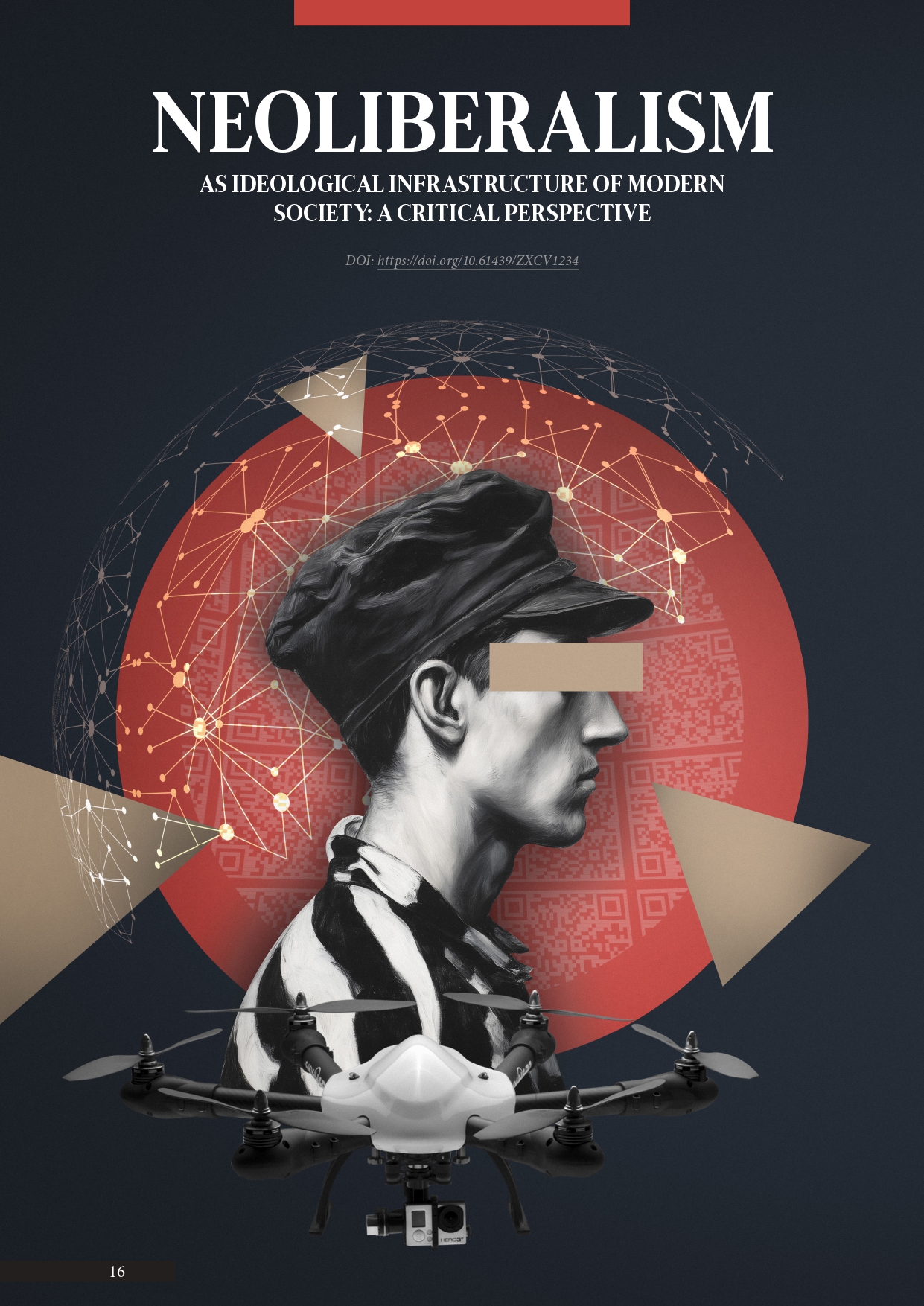Neoliberalism as Ideological Infrastructure of Modern Society: A Critical Perspective
##plugins.themes.academic_pro.article.main##
Abstract
This article explores neoliberal ideology as the foundational force behind contemporary social development. Through the lens of political philosophy, social ontology, and media theory, the analysis traces how neoliberalism has transformed from an economic doctrine into a hegemonic ideological framework permeating political, cultural, and technological domains. Drawing upon the works of Ernesto Laclau, Chantal Mouffe, Antonio Gramsci, Thomas Piketty, and Jean Baudrillard, the paper examines how power is exercised not only through institutional and economic mechanisms but also through discursive, digital, and symbolic practices. The digital environment — dominated by global tech corporations such as Google, Meta, Amazon, and Twitter — serves as a primary medium of control and consent generation. The paper argues that the virtualization of reality, enabled by digitalization and media hyperreality, significantly facilitates the internalization of neoliberal values among individuals. Social reality is increasingly shaped by simulation and spectacle, where ideological control is exerted through the production of affective and symbolic systems. Neoliberalism, therefore, functions as both a material and discursive regime, sustaining elite dominance through soft power and voluntary submission. The study contributes to understanding the ontological dimensions of ideology in the digital age and proposes a rethinking of hegemony, resistance, and the role of subjectivity in late capitalism.
DOI: https://doi.org/10.61439/ZXCV1234

